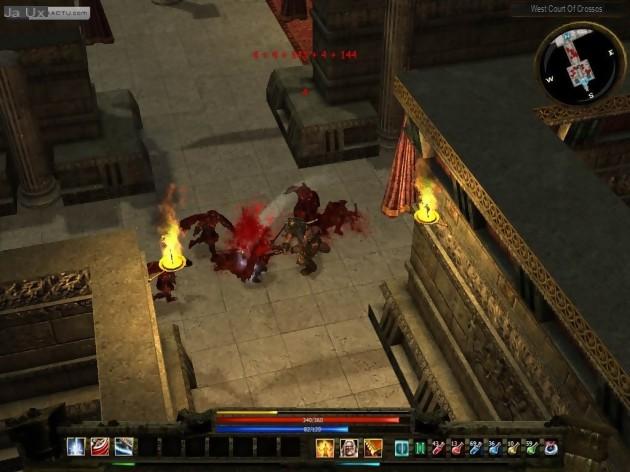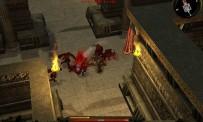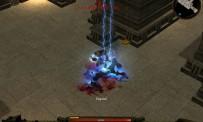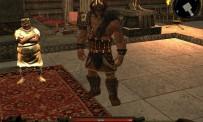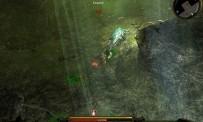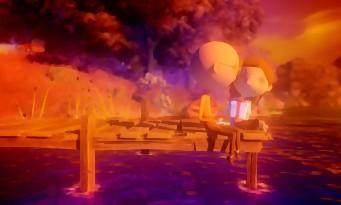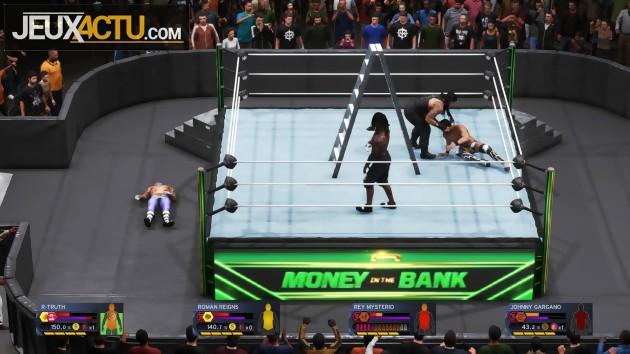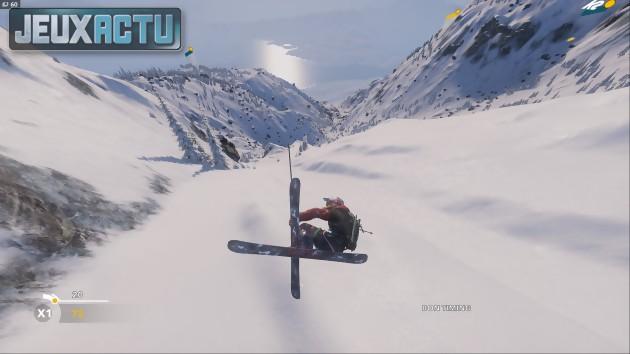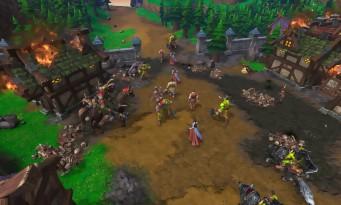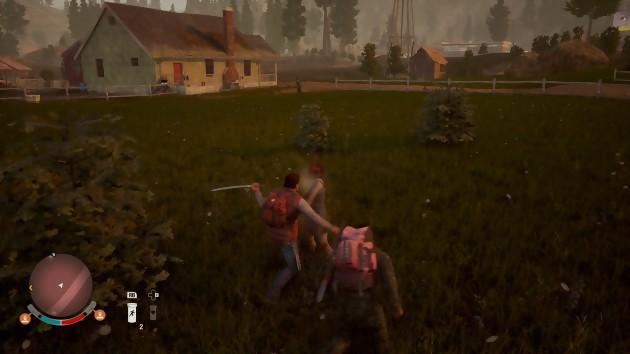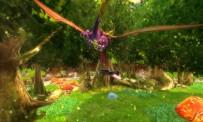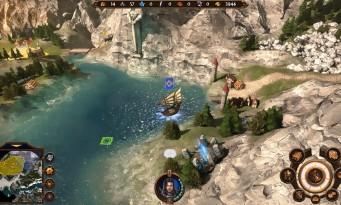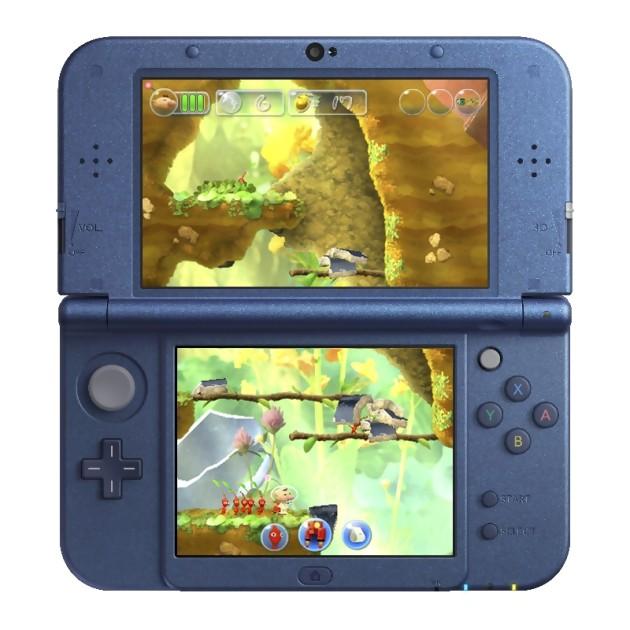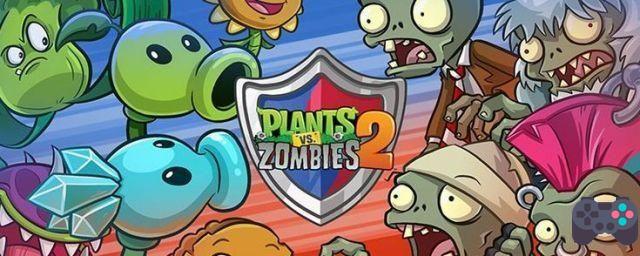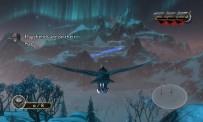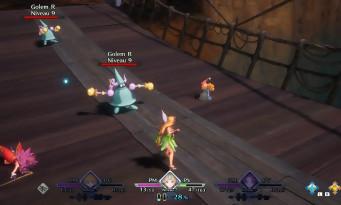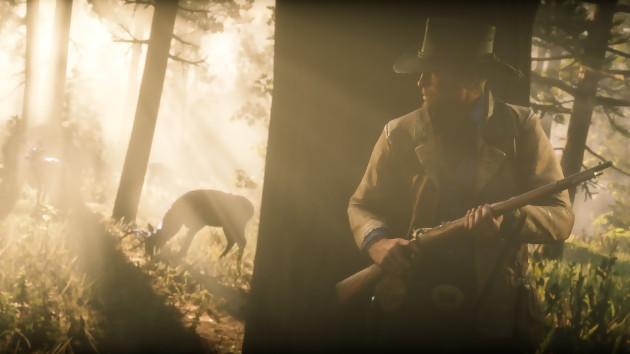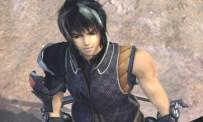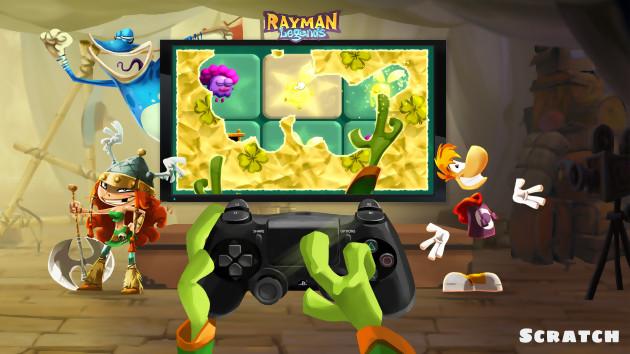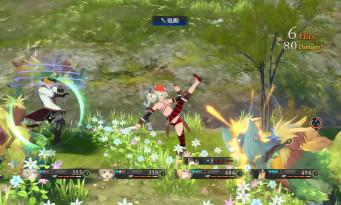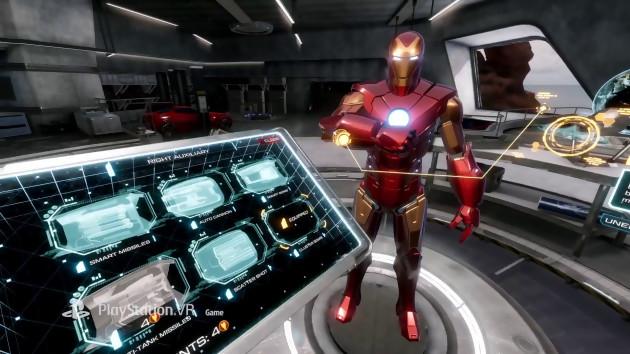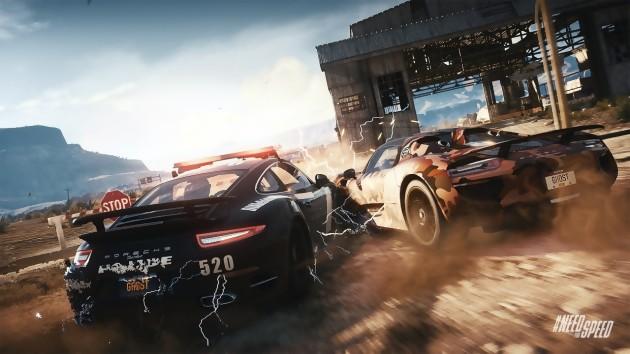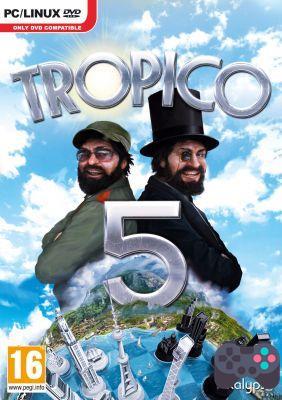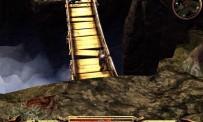 Ripping, eviscerating, dismembering, crushing, grinding, it's your passion. Logic dictates that you can only unleash your talents by becoming a surgeon and/or serial killer. History doing things right, you have the privilege of reaching physical maturity just when the world needs sick people like you. In other times, you would have massacred all the little brats who, worried about your different character, would have tried to contain it by reshaping you with rocks. Today, you see bigger. And if you're still that freaky, blood-loving, kinda feared guy, you're also a potential hero. Because blood flows through the veins of the cohorts that swarm the Aztec, Scandinavian, Egyptian and Greek lands. And this blood, it is a question of making it flow. Quickly, and in large quantities.
Ripping, eviscerating, dismembering, crushing, grinding, it's your passion. Logic dictates that you can only unleash your talents by becoming a surgeon and/or serial killer. History doing things right, you have the privilege of reaching physical maturity just when the world needs sick people like you. In other times, you would have massacred all the little brats who, worried about your different character, would have tried to contain it by reshaping you with rocks. Today, you see bigger. And if you're still that freaky, blood-loving, kinda feared guy, you're also a potential hero. Because blood flows through the veins of the cohorts that swarm the Aztec, Scandinavian, Egyptian and Greek lands. And this blood, it is a question of making it flow. Quickly, and in large quantities.
Me see, me kill
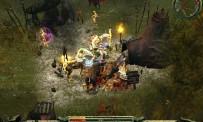 Loki is a game that hurts, and it does it well. Completely taking the opposite view of the other mythological monster breaker, the overestimated and sanitized Titan Quest, Cyanide's latest production plays the card of raw violence, straightforward confrontation. Here, bladed weapons work tirelessly, hemoglobin squirts from bodies by hectoliters, giant spiders screech when they die, bears howl and the endless supernatural caravan that rushes at you gradually passes away. No finesse, no strategy, you are there to massacre, in 3D and in top view, everything that moves. Cut into areas of varying sizes, but rarely offering more than a quarter of an hour of gameplay, Loki's four acts vomit foes to quite mind-boggling proportions. Each more stupid than the other, developing distressing offensive tactics, these opponents nevertheless have the group instinct sufficiently developed for you to find yourself regularly in delicate positions, in this case surrounded by a pack of about ten creatures united by the desire to see you die in excruciating pain. First originality of this Loki, death is not penalizing. You regain consciousness after each disappearance at the start of the zone with all your attributes, and only lose the time it takes you to reach your point of fall. Big players of all Diablo ersatz released since the release of the master, the Parisian developers have tried to shelve everything that had displeased them. And being offloaded x-thousands of XP points with each death was clearly in the second category. So much the better, because we die a lot in this not really difficult but extremely laborious Loki. After the 340th monster eliminated on the same card, attention slackens, the player tries to accelerate his progress a little, and generally ends up regretting it.
Loki is a game that hurts, and it does it well. Completely taking the opposite view of the other mythological monster breaker, the overestimated and sanitized Titan Quest, Cyanide's latest production plays the card of raw violence, straightforward confrontation. Here, bladed weapons work tirelessly, hemoglobin squirts from bodies by hectoliters, giant spiders screech when they die, bears howl and the endless supernatural caravan that rushes at you gradually passes away. No finesse, no strategy, you are there to massacre, in 3D and in top view, everything that moves. Cut into areas of varying sizes, but rarely offering more than a quarter of an hour of gameplay, Loki's four acts vomit foes to quite mind-boggling proportions. Each more stupid than the other, developing distressing offensive tactics, these opponents nevertheless have the group instinct sufficiently developed for you to find yourself regularly in delicate positions, in this case surrounded by a pack of about ten creatures united by the desire to see you die in excruciating pain. First originality of this Loki, death is not penalizing. You regain consciousness after each disappearance at the start of the zone with all your attributes, and only lose the time it takes you to reach your point of fall. Big players of all Diablo ersatz released since the release of the master, the Parisian developers have tried to shelve everything that had displeased them. And being offloaded x-thousands of XP points with each death was clearly in the second category. So much the better, because we die a lot in this not really difficult but extremely laborious Loki. After the 340th monster eliminated on the same card, attention slackens, the player tries to accelerate his progress a little, and generally ends up regretting it.
Say no to giant spiders
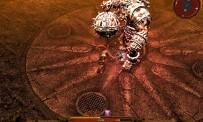 Tap, tap, tap, repetitiveness is one of the recurring faults of the genre, and despite some good ideas, Loki also tends to run out of steam. Embodying your choice of an Aztec shaman very close to the spirits of nature, a Greek Amazon focused on throwing a sharp disc, an explosive Egyptian mage or a Scandinavian warrior who perfectly personifies the term "barbarian", you must visit the lands birthplaces of these heroes. Exotic settings, sometimes missed, sometimes very beautiful, often enhanced with great effects, but unfortunately not very varied and which all tend to recall more or less recent playful experiences. Three out of four chapters thus give the nasty impression of being only all 3D and normal mapped versions of Diablo II, while the Greek escapade inevitably reminds us of Titan Quest. Obviously, and as Thomas Veauclin, artistic director, reminded us during our last meeting, we cannot reinvent Greece or ancient Egypt. What we can nevertheless reinvent is the bestiary of these different regions. And there is still work to be done. If an undeniable creative work has been done, aimed in particular at making the design of the creatures more aggressive, some monsters accustomed to the genre would have done well to forfeit this battle. Giant spiders available in all sauces (ice cream, tarantula, etc.), swarms of wasps, there are many faults in taste. The course of the game (you start with the act of your hero, then continue as you see fit) also devalues your champion. While you have concluded an act by stumbling bosses twelve times larger than you, you find yourself a few moments later, starting a new act by crushing the jaguar. Not really thrilling. However, it is during these games against demonic foot soldiers that the sensations of the game are the best. The clicks you multiply on your enemies in order to attack them are as many kills, and a feeling of warlike omnipotence quickly invades the skull splitter that you are. Whichever hero is selected, and whether it's two-handed sword or offensive spell, when it hits and it hits, it hurts. The sensations are much less against the bosses. Four major mythological figures stand in your way in each world, each more enormous and powerful than the next. Is it the fault of a too erased soundtrack, or of the pseudo-willingness to introduce, without convincing, a tactical facet in each battle, the fact remains that these duels are wiped out in less time than it should be. It takes a quarter of a small play area. For the adrenaline rush, you'll have to go back…
Tap, tap, tap, repetitiveness is one of the recurring faults of the genre, and despite some good ideas, Loki also tends to run out of steam. Embodying your choice of an Aztec shaman very close to the spirits of nature, a Greek Amazon focused on throwing a sharp disc, an explosive Egyptian mage or a Scandinavian warrior who perfectly personifies the term "barbarian", you must visit the lands birthplaces of these heroes. Exotic settings, sometimes missed, sometimes very beautiful, often enhanced with great effects, but unfortunately not very varied and which all tend to recall more or less recent playful experiences. Three out of four chapters thus give the nasty impression of being only all 3D and normal mapped versions of Diablo II, while the Greek escapade inevitably reminds us of Titan Quest. Obviously, and as Thomas Veauclin, artistic director, reminded us during our last meeting, we cannot reinvent Greece or ancient Egypt. What we can nevertheless reinvent is the bestiary of these different regions. And there is still work to be done. If an undeniable creative work has been done, aimed in particular at making the design of the creatures more aggressive, some monsters accustomed to the genre would have done well to forfeit this battle. Giant spiders available in all sauces (ice cream, tarantula, etc.), swarms of wasps, there are many faults in taste. The course of the game (you start with the act of your hero, then continue as you see fit) also devalues your champion. While you have concluded an act by stumbling bosses twelve times larger than you, you find yourself a few moments later, starting a new act by crushing the jaguar. Not really thrilling. However, it is during these games against demonic foot soldiers that the sensations of the game are the best. The clicks you multiply on your enemies in order to attack them are as many kills, and a feeling of warlike omnipotence quickly invades the skull splitter that you are. Whichever hero is selected, and whether it's two-handed sword or offensive spell, when it hits and it hits, it hurts. The sensations are much less against the bosses. Four major mythological figures stand in your way in each world, each more enormous and powerful than the next. Is it the fault of a too erased soundtrack, or of the pseudo-willingness to introduce, without convincing, a tactical facet in each battle, the fact remains that these duels are wiped out in less time than it should be. It takes a quarter of a small play area. For the adrenaline rush, you'll have to go back…
The blacklist
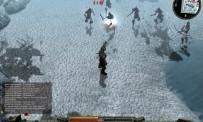 Loki gives you plenty of time to learn how to handle the pressure on your strong shoulders anyway. Between the extended loading times and the slowdowns in shambles, we sometimes spend almost as much time waiting and cursing as playing. French production also risks losing some customers with its revolutionary inventory system. It's simple, Cyanide reinvents the listing: as soon as you pick up on the remains of an enemy or in a chest, his name appears in an inventory window divided into different sections. You can obviously see the beast by clicking on its surname, but at no time do you have an overview of your possessions and cannot perfectly reorganize the contents of your bag. If you do not necessarily need to sort through the 16 two-handed swords collected during your last half hour of play, the impossibility of sorting your different runes, thanks to which you can customize your equipment, is much more irritating. . The skill system does not fail to leave doubtful either. As in any good monster breaker, the more you kill, the more XP you gain and level up. At each level, you get a few points to allocate to five characteristics of your hero (strength, intelligence, etc.). As long as you worship a god from your mythology, each kill also fills a faith gauge which, when full, allows you to get a point to use in the skill tree linked to your boss. Nothing really new under the sun of Ra, except that here you can change divinity whenever you want, and assign points to skills from three different trees. A good idea, except that by playing this way, you will never unlock the high level powers, obviously the most interesting, and this while the entry level skills are sometimes redundant. In the end, and considering the current balance of the game, tempting the polytheistic character has absolutely no interest.
Loki gives you plenty of time to learn how to handle the pressure on your strong shoulders anyway. Between the extended loading times and the slowdowns in shambles, we sometimes spend almost as much time waiting and cursing as playing. French production also risks losing some customers with its revolutionary inventory system. It's simple, Cyanide reinvents the listing: as soon as you pick up on the remains of an enemy or in a chest, his name appears in an inventory window divided into different sections. You can obviously see the beast by clicking on its surname, but at no time do you have an overview of your possessions and cannot perfectly reorganize the contents of your bag. If you do not necessarily need to sort through the 16 two-handed swords collected during your last half hour of play, the impossibility of sorting your different runes, thanks to which you can customize your equipment, is much more irritating. . The skill system does not fail to leave doubtful either. As in any good monster breaker, the more you kill, the more XP you gain and level up. At each level, you get a few points to allocate to five characteristics of your hero (strength, intelligence, etc.). As long as you worship a god from your mythology, each kill also fills a faith gauge which, when full, allows you to get a point to use in the skill tree linked to your boss. Nothing really new under the sun of Ra, except that here you can change divinity whenever you want, and assign points to skills from three different trees. A good idea, except that by playing this way, you will never unlock the high level powers, obviously the most interesting, and this while the entry level skills are sometimes redundant. In the end, and considering the current balance of the game, tempting the polytheistic character has absolutely no interest.
minor god
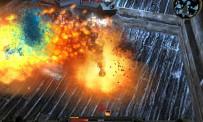 Strange flaws than Loki's. Rising to the level of the best in terms of game sensations, a true apology for primary violence that will not fail to awaken the barbarian who sleeps in you, the title of Cyanide picks up when it tries to revolutionize what has not place to be. Interface to review, division of acts into micro-zones, so-called tactical fights against Bosses, the authors of Chaos League did not give birth to the essential title that one could envisage. Far from being perfectly developed despite months of fine-tuning (on the commercial version – not patched – tested, certain vital objects disappeared from the inventory without having been used), Loki will probably be refined over the months and patches, until it becomes a high quality title. In the meantime, it's just a joyfully brutal hack'n'slash, more powerful than some competitors but less well thought out on many points.
Strange flaws than Loki's. Rising to the level of the best in terms of game sensations, a true apology for primary violence that will not fail to awaken the barbarian who sleeps in you, the title of Cyanide picks up when it tries to revolutionize what has not place to be. Interface to review, division of acts into micro-zones, so-called tactical fights against Bosses, the authors of Chaos League did not give birth to the essential title that one could envisage. Far from being perfectly developed despite months of fine-tuning (on the commercial version – not patched – tested, certain vital objects disappeared from the inventory without having been used), Loki will probably be refined over the months and patches, until it becomes a high quality title. In the meantime, it's just a joyfully brutal hack'n'slash, more powerful than some competitors but less well thought out on many points. 